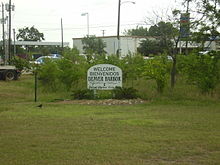
The Fifth Ward, nicknamed the Nickel, is a community of Houston, Texas, United States, derived from a historical political district (ward), about 2 miles (3.2 km) northeast of Downtown. Its boundaries are Buffalo Bayou on the south, Little White Oak Bayou on the west, Collingsworth Rd on the north, and Lockwood Drive on the east.

Sharpstown is a master-planned community in the Southwest Management District, Southwest Houston, Texas. It was one of the first communities to be built as a master-planned, automobile centered community and the first in Houston. Frank Sharp (1906–1993), the developer of the subdivision, made provisions not only for homes but also for schools, shopping and recreation areas. While this model has been duplicated countless times in the past fifty years, at the time it was quite revolutionary, attracting national media attention. The development was dedicated on March 13, 1955.

Westbury is a neighborhood in the Brays Oaks district of Southwest Houston, Texas, United States. It is located east of Bob White Road, north of U.S. Highway 90 Alternate, and west of South Post Oak Road, adjacent to the Fondren Southwest and Meyerland neighborhoods, just west of the southwest corner of the 610 Loop.
Harrisburg is a community now located within the city of Houston, Texas.

Second Ward is a historical political district ward in the East End community in Houston, Texas. It was one of the four original wards of the city in the nineteenth century. The community known as the Second Ward today is roughly bounded by Buffalo Bayou to the north, Lockwood Avenue to the east, and railroad tracks to the south and west, although the City of Houston's "Super Neighborhood" program includes a section east of Lockwood.
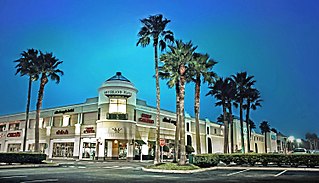
Meyerland is a community in southwest Houston, Texas, outside of the 610 Loop and inside Beltway 8. The neighborhood is named after the Meyer family, who bought and owned 6,000 acres (24 km2) of land in southwest Houston.
Houston Heights is a community in northwest-central Houston, Texas, United States. "The Heights" is often referred to colloquially to describe a larger collection of neighborhoods next to and including the actual Houston Heights. However, Houston Heights has its own history, distinct from Norhill and Woodland Heights.

Braeswood Place is a group of subdivisions in Harris County, Texas, United States. The vast majority of the land is in Houston while a small part is in Southside Place.
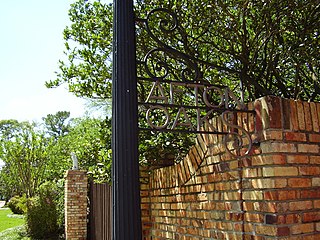
Afton Oaks is a deed-restricted "Inner Loop" upscale residential community of approximately 525 homes in Houston, Texas, United States. Afton Oaks is located inside Interstate 610 near the Galleria and Highland Village. The neighborhood is bounded on the north by Westheimer Road, on the east by Union Pacific railroad tracks, on the south by Interstate 69/U.S. Highway 59, and on the west by Interstate 610.

Phillis Wheatley High School is a secondary school located at 4801 Providence Street in Houston, Texas, United States with a ZIP code of 77020. Wheatley is a part of the Houston Independent School District. Wheatley, named after Phillis Wheatley, is located inside the 610 Loop in the Fifth Ward.
Pecan Park is a neighborhood in Houston, Texas.

Willow Meadows is a subdivision in Houston, Texas, United States.
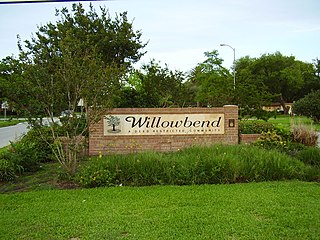
Willowbend is a neighborhood in near Southwest Houston, Texas.
Near Northside is a historic neighborhood located in Northside, Houston, Texas. Near Northside is primarily occupied by people of Hispanic descent.
Manchester is a community in southeastern Houston, Texas, United States.
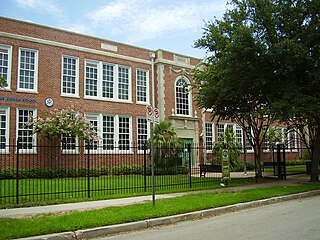
Harvard Elementary School is a public primary school in the Houston Heights neighborhood of Houston, Texas, United States. Harvard, a part of the Houston Independent School District, serves grades Pre-Kindergarten through 5.
Kashmere Gardens is a historically African-American neighborhood in the northern 610 Loop area in Houston, Texas, United States. A group of single-family houses, many of which have large lots, Kashmere Gardens is between an industrial area and a rail corridor.
Cottage Grove is a community in Houston, Texas.

Westwood is a residential subdivision in Southwest Houston, Texas. The subdivision is bounded by the 610 Loop, the Union Pacific railroad tracks, Stella Link Road, and Willowbend Boulevard. It has about 800 houses.
Sunset Heights is a neighborhood in northern Houston.
